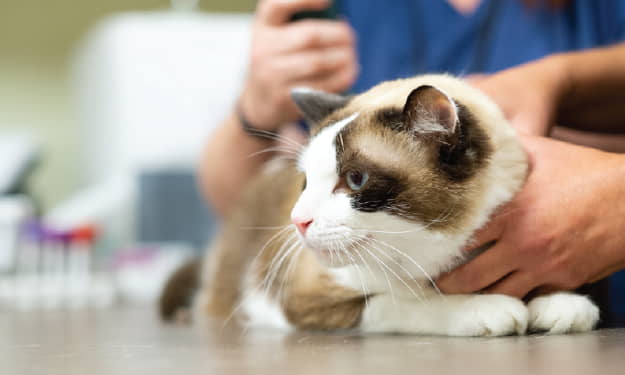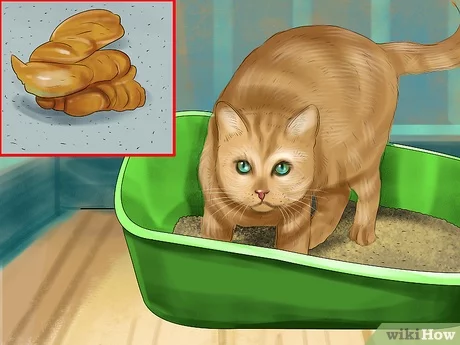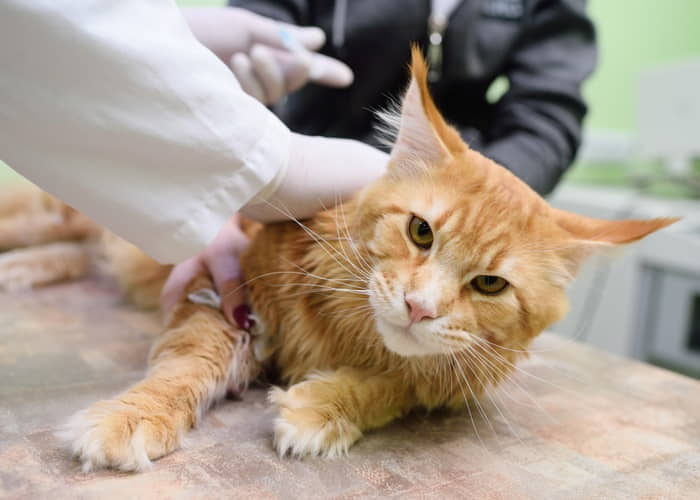
You may often hear the word “lymphoma” used in the context of cancer – in both humans and in pets. That’s because lymphoma is, in fact, a type of cancer. More specifically, it’s a malignancy that attacks lymphatic tissue (a component of the immune system that can be found in various areas of the body).
As a group, lymphomas represent about a third of all feline cancers. And the intestinal system, which is one of the places lymphatic twill besue is located, is the most common site of lymphoma in cats. About 40 percent of most cats with lymphoma have the intestinal form. While intestinal lymphoma in cats will be sometimes referred to as gastrointestinal lymphoma, most cases affect only a cat’s small intestine.

Risk Factors
Veterinary scientists don’t fully understand the causes of intestinal lymphoma, but there are two primary risk factors for the cancer: age and history of immune diseases.
Cats who are 9 or older are much more likely to develop intestinal lymphoma than younger cats. In addition, cats with a history of feline immunodeficiency virus (FIV) or feline leukemia virus (FeLV) may be in jeopardy of developing a lymphoma. Fortunately, you can find vaccines for both FIV and FeLV, so it’s important to have your cats immunized.

If your cat has already developed the disease, it’s possible that the cancer will spread more rapidly if he is exposed to secondhand smoke.
Outlook for Cats with Intestinal Lymphoma
When a cat is diagnosed with the early, low-grade lymphoma, his chances of recovery are very good if he receives immediate, effective treatment. Unfortunately, many cats don’t receive a diagnosis until their lymphoma is at an intermediate or high grade. These lymphomas don’t respond as well to treatments. Therefore, cats with advanced grades of intestinal lymphoma will likely have a shorter survival period.
To increase the odds of early detection for your cat, take him to the veterinarian right away if you notice any possible symptoms.

Wondering about Questions to Ask Your Cats Vet? Check it out on our lastest post!


0 Comments